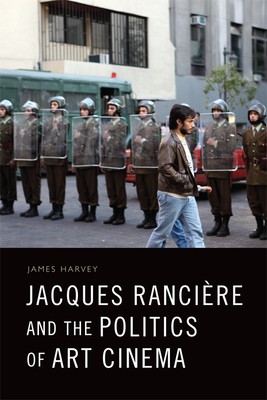
- We will send in 10–14 business days.
- Author: James Harvey
- Publisher: Edinburgh University Press
- Year: 2018
- Pages: 152
- ISBN-10: 1474423787
- ISBN-13: 9781474423786
- Format: 15.8 x 23.6 x 1.5 cm, kieti viršeliai
- Language: English
- SAVE -10% with code: EXTRA
Reviews
Description
In Jacques Rancière and the Politics of Art Cinema, James Harvey contends that Rancière's writing allows us to broach art and politics on the very same terms: each involves the visible and the invisible, the heard and unheard, and the distribution of bodies in a perceivable social order. Between making, performing, viewing and sharing films, a space is constructed for tracing and realigning the margins of society, allowing us to consider the potential of cinema to create new political subjects. Drawing on case studies of films including Charlie Kaufman's Synecdoche, New York, Nuri Bilge Ceylan's Climates and John Akomfrah's The Nine Muses, this books asks to what extent is politics shaping art cinema? And, in turn, could art cinema possibly affect the political structure of the world as we know it?
EXTRA 10 % discount with code: EXTRA
The promotion ends in 23d.07:27:13
The discount code is valid when purchasing from 10 €. Discounts do not stack.
- Author: James Harvey
- Publisher: Edinburgh University Press
- Year: 2018
- Pages: 152
- ISBN-10: 1474423787
- ISBN-13: 9781474423786
- Format: 15.8 x 23.6 x 1.5 cm, kieti viršeliai
- Language: English English
In Jacques Rancière and the Politics of Art Cinema, James Harvey contends that Rancière's writing allows us to broach art and politics on the very same terms: each involves the visible and the invisible, the heard and unheard, and the distribution of bodies in a perceivable social order. Between making, performing, viewing and sharing films, a space is constructed for tracing and realigning the margins of society, allowing us to consider the potential of cinema to create new political subjects. Drawing on case studies of films including Charlie Kaufman's Synecdoche, New York, Nuri Bilge Ceylan's Climates and John Akomfrah's The Nine Muses, this books asks to what extent is politics shaping art cinema? And, in turn, could art cinema possibly affect the political structure of the world as we know it?


Reviews